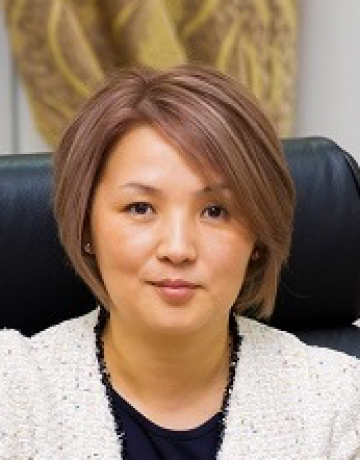
Nazipa Ayubaeva
Deputy Chairman of the Board, AEO “Nazarbayev Intellectual Schools”, Kazakhstan
Nazipa received her doctorate from the University of Cambridge (UK, 2017), defended her Master of Philosophy degree from the University of Cambridge (UK, 2012), received an MBA in Marketing and Information Systems from Bangalore University (India, 2003).
She began her professional career as an English teacher at a secondary school in Taraz, and also taught at the "Institute of Oriental Studies and Culture" and "Manas International University" in Bishkek (1997-2000).
Within the framework of TACIS projects, she took part as a trainer in human resource development, participated in the Central Asian regional projects of the European Commission, the US Agency for international development and the world trade Institute (2003-2008). Then she headed the projects of the joint-stock company "National Analytical Center under the Government and the National Bank of the Republic of Kazakhstan".
From 2009 to 2019, as Deputy Chairman of the autonomous educational organisation "Nazarbayev Intellectual Schools" (NIS), she led the development and implementation of the "Development Strategy of 20 Nazarbayev Intellectual Schools", coordinated cooperation programs with international partners. Under her leadership, a research strategy for NIS was developed and implemented, as well as reforms of the NIS curriculum, a pilot implementation of a system for selection, professional development and evaluation of teachers.
Nazipa Ayubaeva took an active part in the coordination of the OECD "Education - 2030" project (2017-2018). She is a member of the Board of Trustees of the "Nazarbayev University Social Development Fund" and the Advisory Board of the "Alumni Nazarbayev Intellectual Schools Association".
Scientific interests of Dr. Ayubaeva include issues of strategy for reforming secondary education, training and professional development of teachers. In the 2019 research project, the issues of reforming school education and the implementation of the updated curriculum in secondary schools of Kazakhstan were studied.
- School education
What should we do if teachers are not willing to try digital technologies in their work? Well, it seems that everything has been discussed, agreed...






